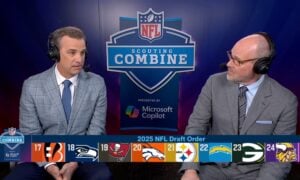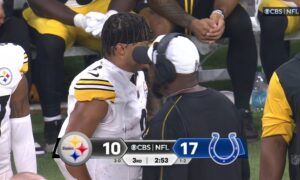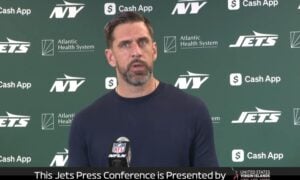During his Tuesday conference call with season ticket holders, Pittsburgh Steelers general manager Kevin Colbert was asked about the health status of inside linebacker Sean Spence, who is still recovering from tearing up his left knee last preseason in the game against the Carolina Panthers.
“Sean is progressing,” said Colbert. “When you have as serious a knee injury as he unfortunately had, it sometimes is a very long process. Sometimes it takes over a year to fully rehabilitate. But the good thing is we are seeing signs of progress, albeit small steps. But it is progress. Sean’s attitude is off the charts. He wants to rehab. He wants to be a great player. He is working hard to get there. He is making small progress, and as long as he is making progress, we will be patient with him and hopefully get him back at full speed at some point.”
If you have followed along with the updates on Spence, you can clearly see that the Steelers have accepted the fact that he will not be playing in 2013. Linebackers coach Keith Butler said during his talk with the media following the selection of Florida State inside linebacker Vince Williams in the sixth round of the 2013 NFL draft, that it would be a miracle if he ever plays again.
“I don’t think he is going to be, Butler said when asked if Spence would be ready to play in 2013. “It will be miraculous if he does come back. It will be miraculous if he comes back next year. We are going to take a chance on him and see if he can come back. To me, he is worth every bit of that.”
During the recent rookie camp, Steelers head coach Mike Tomlin was more positive with his remarks about Spence, the Steelers third round draft pick in 2012 out of Miami.
“I did hear the (Butler\’s) opinion regarding Spence, my opinion differs,” said Tomlin. “I think he\’s going to have a full recovery, but now you have two opinions, neither of which are expert medical opinions, so do with it what you wish.”
It was reportedly early in the offseason that Spence had damage to his peroneal nerve, which is located on the outside part of the lower knee and is responsible for transmitting impulses to and from the leg, foot, and toes. When that nerve is damaged, the muscles may become weak and condition called foot drop, which is the inability to raise the foot upwards, can occur.







